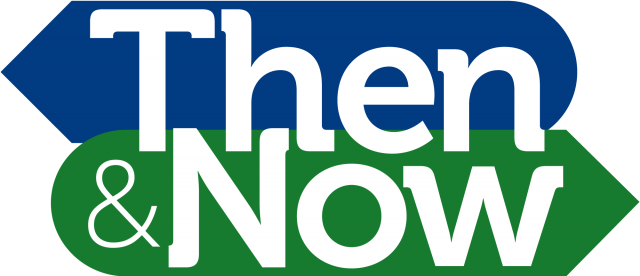Then and Now: Looking Back and Moving Forward

Experience the winding journeys of children, youth, and families in child welfare through first-hand accounts.
This series features adoptive parents and a young adult formerly in care telling their stories at two points in time. Access the videos below and related activity and discussion guide below to spark critical thinking about well-being and resilience. Foster care and adoption program managers, supervisors, training managers, and recruitment and licensing specialists can use the videos and guide to support group learning or individual coaching with child welfare workers and current or potential resource parents.
Watch the Then and Now Videos
In the five videos in this series, adoptive parents, kin caregivers, and a young adult formerly in care speak candidly about moments of joy and sadness. Each video features two stories about the same individuals several years apart. Looking backward and forward provides a chance to identify actions and services that made a difference and to consider missed opportunities for what might have been helpful.
Underscores the importance of community connections and ongoing supports to child and family well-being. In this set of digital stories, a grandmother, Joan, promotes the idea of “surround-sound parenting” for her adopted grandson, Chad.
Relays the highs and lows of Josh, a young adult with a passion to help children in foster care. While poised for success as he graduates college, Josh meets challenges later in life after the loss of critical supports. In this video, Josh points to trauma-informed strategies that build youth resilience and help create “reserves” for when crises hit.
Tells the story of Melissa and her two sons, David and Emilio, following their adoption. This set of digital stories underscores the need for connections, educational supports, and post-adoption services.
Addresses the importance of being open to agency supports and the necessity of self-care in working through family transitions. In this set of digital stories, Jammie, a kinship parent caring for her niece's children, reflects on family connections and supportive services.
Reveals the complexity of family dynamics through the experiences of Shary, a kinship parent caring for her niece, Brianna, and grandson, Random. In the first digital story, Brianna seeks to reconnect the pieces in her family puzzle. The second digital story highlights Random's unflappable resilience despite medical challenges.
Lead or Learn Through Activities and Discussions
Use the activity and discussion guide (PDF - 910 KB) to prompt conversations about:
- Promoting child and family well-being through connections, supports, and services
- Building youth, caregiver, and worker resilience
- Integrating protective factor approaches into family strengthening and workforce development
These resources may be helpful to you:
- As a foster care or adoption program manager working with staff and caregivers to make sure children, youth, and families receive needed services and feel connected
- As a supervisor in team meetings or one-on-one coaching with workers
- As a training manager in preservice or inservice training for child welfare workers, supervisors, and resource parents
- As a recruitment and licensing specialist in outreach, training, or “ice breaker” activities with kinship caregivers and other current or prospective resource families
- As someone caring for or working with children and youth to gain new insights
Earn Continuing Education Credits
We are pleased to offer social work, clinical psychology, counseling, and marriage and family therapy continuing education units (CEUs) with this learning experience. After completing activities in the discussion guide, you may purchase CEUs at the R. Cassidy Seminars website.
* Note: The CEU sponsor, R. Cassidy Seminars, maintains responsibility for its CEU program. For more information on the licensing program and requirements, please visit its website.
Connect With Us
Learn how we can help your agency build the capacity to thrive.
Email: capacityinfo@icfi.com
Phone: 1.844.222.0272
Visit the Center for States' Contact Us webpage for more information.



